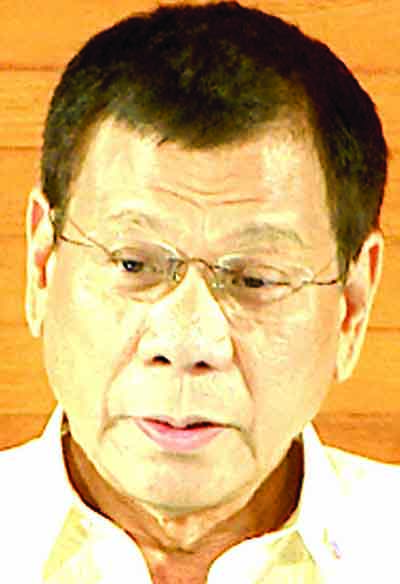
The seed of federalism has been planted in Bohol figuratively through the PDU30-CoRe (Constitutional Reformers) forum yesterday at the Bohol Cultural Center that gathered together the mayors and vice mayors in the province, and representatives from non-government organizations, civil society organizations, academe, religious organizations, and government offices.
“At 10:20 a.m., officially, the seed of federalism is planted in Bohol,†Lawyer Raul Lambino, lead convenor of PDU30-CoRe to Federalism forum declared this during the forum yesterday.
The forum kicked off the information campaign for the shift from Unitary form to Federal form of government in the Philippines seen to take shape either in the last three years or the last year of the Duterte administration.
Lambino, the keynote speaker in the gathering, explained that the process won’t be easy since “we are not creating just a province or municipality or townâ€.
“We are creating new states within a state in federalism,†Lambino said.
He explained that they will just deliver what can be done or doable during the Duterte administration.
There might be things that could not be done in 10 or 20 years, but what can be done would be to sow the seed of federalism in the country.
In a federal form of government, there is greater autonomy of the local government units.
Lambino said said Belgium is the best model for federalism in the Philippines.
Dennis Ancheta, professor of History, said the crucial advantage of federalism is it is where “an honest and competent leader can do a lot of good but a bad leader cannot do much harmâ€.
Ancheta also explained that federalism in the Philippines will facilitate faster decision-making, more political stability, more power over funds and resources, promotion of specialization. It will also naturally decongest Manila, bring government closer to the people, and encourage competition.
However, it may be divisive or there might be uneven development among states. This is aside from the financial cost of transition.
In Unitary form of government, there is too much power in the hands of Imperial Manila (central government) which should be changed.
Also under the current form of government, the President controls most of government resources and bureaucracy where budget is dictated by national government.
Bureaucracy has been blamed for delayed response and delayed repairs.
There is uneven development and distribution of resources to provinces and regions- -14.27 percent to Metro Manila, 20.94 percent to Luzon, 9.94 percent Visayas, and 13.23 percent Mindanao.
Malacañang decides how much to give to LGUs.
In a federal form of government, the states can make decisions with little or no interference from the national government, Ancheta explained.
He said local autonomy was a good start through the 1991 Local Government Code though it devolved little powers such as in health social welfare, agriculture, and environment.
“Federalism is a form of government where sovereignty is shared by central authority and states (regions). [We can focus] on the interest of the nation, foreign relations, national security and monetary policies,†Ancheta said.
A number of issues beset the country like insurgency that traces long history (Hukbalahap in 1941; CPP/NPA, political warriors, failed agrarian reform), Moro rebellion, social unrest.
It must also be noted that while other Asian countries have progressed steadily, the Philippines is beset by cycles of boom and mostly bust and ranks 63rd among 85 poorest countries, Ancheta added.
He also traced the history of struggles for independence from the 333-year Spanish Rule to the American colonization from which emerged heroes in the fight against oppression.
Emilio Aguinaldo became first president of the Philippine Republic and his time the Malolos Constitution (1899-1901) was produced.
The Americans took over from 1901-1945.
In his time, Manuel Quezon declared: “I would rather have the Philippines run like hell by Filipinos than heaven by foreignersâ€, according to Ancheta, citing the references of Philippine history.
Ancheta cited the Jones Law or the Philippine Automony Act, could be the most significant law, that “created the first fully elected Philippine legislature†where the name “Assembly†was changed to House of Representatives.
It had an inkling of federalism.
